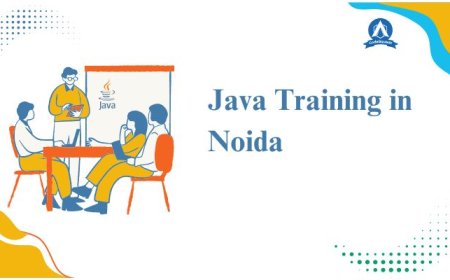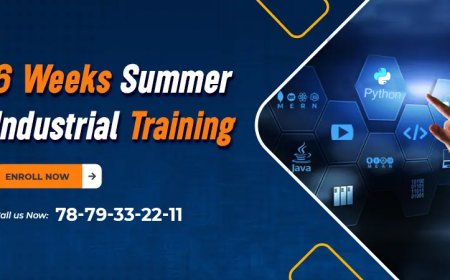How Great Scrum Masters Measure Success Beyond Sprint Goals
Learn why outcomes aren't the only way to measure success as a Scrum Master. Read on to discover key behaviors, leadership growth, and insights from HelloSM’s Scrum training. best scrum training institute in Hyderabad, top training institute for scrum in India, Visit HelloSM, top training institute for scrum in Hyderabad, Scrum blog, Scrum Guide summary

In the world of Agile and Scrum, success is often linked to outcomes, delivering features, achieving sprint goals, or meeting customer demands. But is that the complete picture? If youre a Scrum Master, coach, or team leader, youve likely realized that outcomes alone cant fully define success in todays unpredictable, fast-paced environments.
At HelloSM, India's best Scrum training institute in Hyderabad, we're interested in a broader, more people-oriented definition of Scrum Master success. Here's how you can consider your influence beyond results and outcomes.
Why Outcomes Alone Aren't Enough?
Face the facts, you can't always get things accomplished. Market demands, changing customer demands, team dynamics, and stakeholder demands all change by the second. Even the most seasoned Scrum Master cannot promise successful product delivery or trouble-free sprint completion.
Just as surfers do not control waves but can ride them with competence and sensitivity, Scrum Masters work through hard ground without depending only on results. Therefore, at HelloSM, India's premium training institute for Scrum, we train leaders to dig deeper.
Let us take three mighty filters for gauging success as a Scrum Master from the Scrum Guide summary and extrapolated Agile leadership insight.
Outcomes Still Matter
Yes, there is value in delivering business value and hitting targets. Your team wants to make their impact. But occasionally:
-
A sprint target is not achieved.
-
A feature is launched but doesn't lift off with customers.
-
Deadlines are missed due to underlying subtleties.
These are not failures, they're course corrections. Grow from them, adapt, and sharpen your team's process. But keep in mind, outcomes are only part of the story.
Behavioral Indicators: The Often Missed Lens
To actually measure your team's progress, observe behavior. Ask yourself:
-
How did the team handle challenges or failing goals?
-
Did they identify problems early?
-
Do they welcome feedback and learn speedily?
-
How do they handle conflict? Avoidance? Blame? Or do they tackle challenges in a positive way?
-
Are Scrum values of openness, courage, and respect evident in everyday behaviors?
These habits are predictors of future success. They indicate that a team is dedicated to becoming agile, and learning.
And you, the Scrum Master, how are you presenting yourself?
Are you hearing what your team needs, and not necessarily what they desire?
Are you responding or reacting?
When it doesn't work out, do you pummel yourself with self-guilt or view it as a chance to learn?
As we instruct in our Scrum Essentials certification, failure is information. It's not you. Failure is not failing. Shifting your mindset to this can totally change how you lead.
Developing Leadership Capacity
The third lens is deeper still, your leadership growth capacity in the midst of uncertainty. Rarely the emphasis of conventional Agile training. But at HelloSM Hyderabad's top Scrum training centre, we realize it is here that real change happens.
Leadership capacity includes your ability for:
-
Staying grounded under pressure
-
Being open, curious, and non-judgmental
-
Making decisions aligned with purpose
-
Inspiring others even when things are tough
-
Being present, intentional, and authentic
These internal shifts enable you to lead through disruption, navigate difficult conversations, and develop your people's emotional and professional development.
Rethinking Success: It's a Journey
Success is not a scoreboard. It's not all about deliverables. It's all about direction, depth, and presence. It's about making people and you better versions with each iteration.
-
Your job is not your identity.
-
Your role is not your worth.
-
Your value isn't measured by sprint velocity.
Want to develop as a change agent and an actual leader in Agile settings? Begin with these three question starters:
What am I creating as outcomes and why?
What am I creating to change in others and me?
How am I creating leadership capacity in my team?
Reflecting through these frames provides you with a fuller and more compassionate understanding of your impact as a Scrum Master.
Here at HelloSM, it's not about frameworks alone, it's about shaping responsive, aware, and motivating leaders. With our Scrum Guide Expansion Pack, handpicked materials and suggestions for the top Scrum books, we guide you to grow in your trade and person. Visit HelloSM, Hyderabad's top Scrum learning institure, to discover the mentor that guides your journey as a leader.
Frequently Asked Questions
Who is accountable for creating a valuable Increment each Sprint?
According to the Scrum Guide summary, the entire Scrum Team is accountable, but the Developers specifically are responsible for building a valuable and usable Increment during each Sprint.
Why is it important to go beyond outcomes in Scrum?
Outcomes can be influenced by external factors. Reflecting on team behaviors and leadership capacity provides a more complete picture of progress in complex systems.
Where can I download a Scrum Handbook PDF?
You can access a reliable Scrum Handbook PDF from reputable Scrum organizations or training institutes like HelloSM that follow the official Scrum Guide.
What is the Scrum Essentials certification?
Its an entry-level course designed to build strong foundational knowledge of Scrum roles, events, and values, perfect for aspiring Scrum Masters and team members.
What are the best Scrum books for new Scrum Masters?
Some top picks include: Scrum: The Art of Doing Twice the Work in Half the Time by Jeff Sutherland. Essential Scrum by Kenneth S. Rubin. Scrum Mastery by Geoff Watts

























